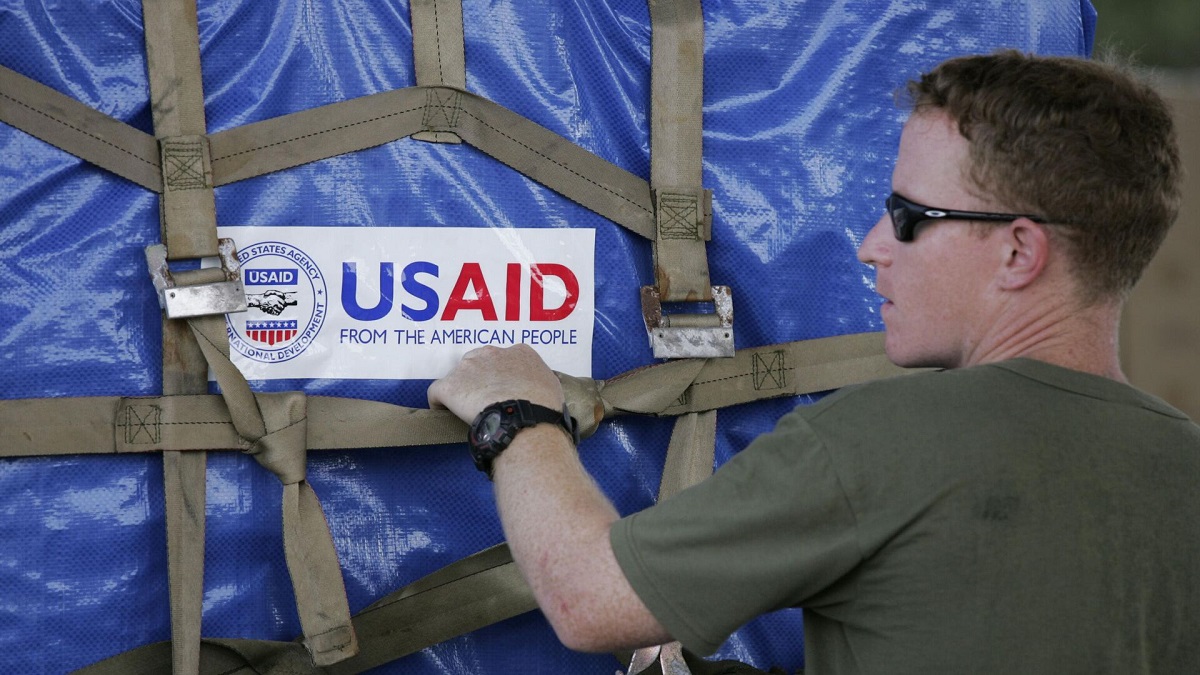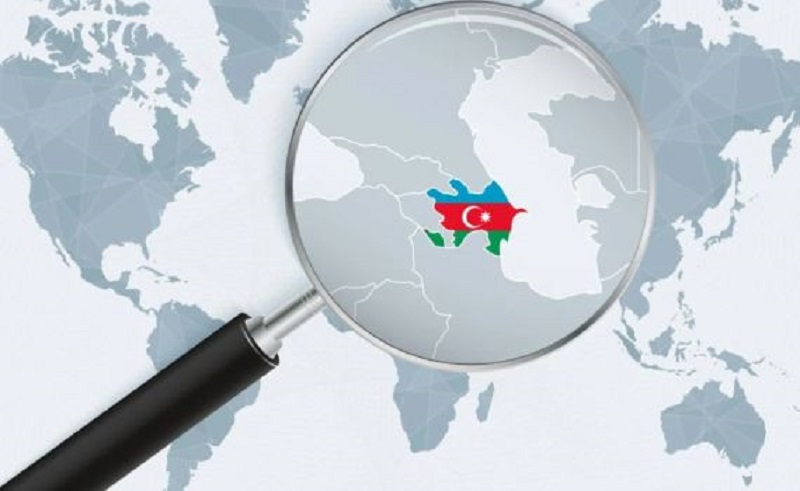Ilham Aliyev accused the State Department of pressuring Azerbaijan, and lawmakers are calling for USAID's expulsion
Tensions between Azerbaijan and the West
Tensions between Azerbaijan and the West are escalating daily. In response to a letter from more than 60 congressmen urging the U.S. Secretary of State to pressure the Azerbaijani government, President Ilham Aliyev stated that the author and the recipient of this letter are the same. “The recipient is the U.S. Secretary of State, but I have no doubt that this letter was written in the State Department,” he said.
Meanwhile, members of the Milli Mejlis called on the country’s Foreign Minister to reconsider relations with the U.S. and denounce agreements on defense cooperation.
“From the actions and provocations of the U.S., it can be concluded that Washington desires a confrontation between the region, Russia, and Iran,” believes Azerbaijani political scientist Farhad Mamedov.
- The ruling party of Georgia is resuming impeachment proceedings against the president
- “In Armenia, it is possible to freely express your opinions without fear”: USAID study
- “Time shows that Europe still does not understand the realities of Azerbaijan.” A perspective from Baku.
What happened?
On October 3, about 60 American lawmakers addressed Secretary of State Antony Blinken, requesting that he “pressure President Ilham Aliyev to release political prisoners ahead of the COP29 climate summit.” Among the lawmakers were 10 senators and 48 representatives, who urged Blinken to “force Azerbaijan to take ‘real measures’ for the release of political prisoners and to condemn provocative statements against Armenia that ‘risk undermining peace negotiations.'”
“We urge the State Department to achieve the immediate and unconditional release of all political prisoners, hostages, and prisoners of war, including ethnic Armenians, to create a more favorable environment for successful diplomacy at COP29,” the letter stated.
“When the occupation of Afghanistan began, Azerbaijan was needed by the U.S., but when they fled from there, sanctions were imposed.”
“60 pro-Armenian members of the American Congress have called on the U.S. government to impose additional sanctions against Azerbaijan. This morning I read this despicable statement, which cannot affect our will. But it shows that the policy of hostility towards us does not cease,” President Ilham Aliyev said on October 4 during a meeting with residents of Jebrayil, which returned under Azerbaijani control after the 2020 war.
“Having reviewed this statement, I realized that the author and the recipient are one and the same. The recipient is the U.S. Secretary of State, but I have no doubt that this letter was also written in the State Department. In other words, they write letters to themselves, threatening us and accusing us,” Aliyev was quoted by the state agency Azertac.
Commenting on the reasons for the negative attitude towards Azerbaijan, Aliyev said that when the “occupation of Afghanistan began, they needed us.” Therefore, the sanctions imposed by the 907th amendment in 1992 were lifted annually.
“But when they fled from Afghanistan, in front of the whole world, these sanctions were imposed against us again. What a level of ingratitude!” said Aliyev.
Continuing his criticism of the West, the president stated: “How can it be that Azerbaijan restored its rights without asking anyone, without fear of anyone, and without considering anyone? By its own means, thanks to the self-sacrifice of its children. They cannot forgive us for this.”
“Today, American sanctions are being imposed against Azerbaijan, after which they say, let’s strengthen our friendship. What friendship can there be?” Aliyev added.
“Denounce defense cooperation with the U.S. and halt USAID activities in Azerbaijan”
Following the president’s remarks, a group of Milli Mejlis deputies, outraged by the congressmen’s and senators’ letter to the Secretary of State, appealed to Foreign Minister Jeyhun Bayramov, urging him to reconsider relations with the U.S. and denounce agreements on defense cooperation.
“We would like to remind the authors of the address, who make claims against Azerbaijan regarding human rights and international humanitarian law, that during the wars initiated by the U.S. in Iraq, Afghanistan, and other regions of the world, millions of civilians died. Many people were tortured and punished without trial.
The U.S., which speaks about human rights, has not joined the most important human rights conventions. It was the U.S. that for many years did not allow the UN special rapporteur on torture into Guantanamo,” noted the deputies.
The parliamentarians reminded that the U.S., as a co-chair of the OSCE Minsk Group, along with France, “strived to keep Azerbaijani lands under occupation.”
“Congressmen, who constantly talk about the sovereignty and territorial integrity of Armenia, have never once spoken about respecting the sovereignty and territorial integrity of Azerbaijan,” the document also stated.
The deputies proposed the following to the Foreign Minister:
- Denounce the Joint Statement “On Future Military and Defense Relations Between the Republic of Azerbaijan and the United States” from 1997, and the Agreement “On the Acquisition of Equipment and Mutual Services Between the Ministries of Defense of Azerbaijan and the United States” from 2013;
- Cease negotiations to agree on new contracts and extend existing ones;
- Halt all projects carried out in Azerbaijan by the U.S. Agency for International Development (USAID) and U.S. non-governmental organizations, prohibit new projects, and cease USAID activities in Azerbaijan.
Expert Opinion
Azerbaijani political scientist Farhad Mammadov analyzed U.S. relations with the countries of the South Caucasus and their interests in the region:
What does the U.S. offer for the South Caucasus?!
“U.S. Deputy Secretary of State James O’Brien stated that the security architecture created by Russia and Iran is undesirable for the South Caucasus countries.
‘A future built around the axis of Russia and Iran as the main players in regional (South Caucasian) security is unstable and undesirable, including for the governments of Armenia and Azerbaijan,’ O’Brien said.
A thought, however vague!
A thought that what is undesirable for Armenia and Azerbaijan is useful, for which I express gratitude to Mr. O’Brien.
But before this, the leaders of Azerbaijan somehow figured it out themselves, and that was 25 years ago. Azerbaijan established a strategic partnership with Georgia and Turkey in a trilateral format, which Washington has always viewed with indifference. All strategic projects of Azerbaijan that are in the interests of the U.S. go through this trilateral format.
Azerbaijan has not joined the CSTO, is not a member of the EEU and the Customs Union, where Russia is the leader. Azerbaijan and Russia have natural trade relations.
With Moscow, Baku has only a declaration of allied cooperation, which allowed the withdrawal of RMC from Azerbaijan ahead of schedule.
Azerbaijan’s relations with Iran are complex and contradictory.
The North-South transport corridor involving Russia, Azerbaijan, and Iran is only an economic project; there is no hint of forming any axis there.
Azerbaijan’s axis of future development is formed around OTsG in the vectors of East-West and North-South. Everything agreed with Baku works!
And what about Armenia?!
Armenia is an ally of Russia, a country that is a member of the CSTO, EEU, and Customs Union. In Armenia, there is a Russian military base, and the FSB of Russia is stationed at Armenia’s borders with Turkey and Iran! Pashinyan’s government is increasing trade turnover with Russia to 14-16 billion dollars a year.
In other words, Armenia has a full package with Russia!
Armenia’s relations with Iran are at the level of strategic partnership, and they are also developing and deepening. At least, Pashinyan is the only leader in the region who has met with Khamenei in recent years.
Iran interacts with the EEU through Armenia.
Thus, Armenia is a striking example of being in the axis of Moscow and Tehran.
And how does the U.S. react to this?
I’m not just wasting time listing things that are widely known.
The short-sightedness of the current American administration is that, while making such statements, they are, first of all, inconsistent in their further steps. The U.S. has drawn closer to Armenia, calls its policy reasonable, and does everything to distance Azerbaijan from itself. President Ilham Aliyev called this inconsistency ingratitude.
Well, from O’Brien’s statement, we understand that it is undesirable for the countries in the region. But what is desirable? This is not mentioned.
From the actions and provocations of the U.S., it can be concluded that Washington desires a confrontation between the region, Russia, and Iran. It is precisely confrontation.
For example, Azerbaijan’s independence in relations with Russia and Iran does not satisfy Washington.
There is little time left until the elections in the U.S., and I sincerely hope that the current administration will fade away, as this inconsistency and bias exceed all reasonable limits.”





















